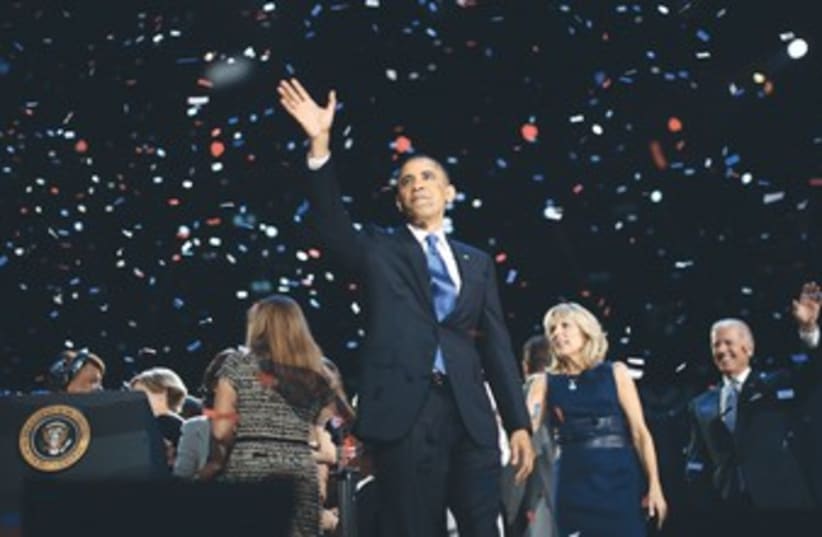"Sometimes Israelis forget that while Israel is an important US interest, it is not its central interest, Anthony Cordesman told a panel of former Israeli security chiefs and high-ranking officials. “[America’s] major strategic interest in the Middle East lies in energy, it lies in the flow of petroleum exports through the Gulf,” he said. “I think this is sometimes something that Israelis forget. You are an important strategic interest, but you cannot be the center of our strategic interests. They are too broad, too global,” he added.Those interests are ones that no viable candidate for the US presidency would – or could – change overnight. As a strategic interest, Israel is part of a larger, slow-moving and predictable puzzle of US foreign policy, for better or for worse.
Omer-Man offers some interesting hypotheses as to why Israelis are so "obsessed" with the US presidential race. Read his post, US elections: It's not about Israel, to find out more.Ira Sharkansky also offers his thoughts on the aftermath of the elections. He writes two posts, Will it make a difference? and It's America, in which he analyzes and questions whether Obama's win will really have any impact on Israel. Like Omer-Man, Sharkansky takes a rather unconcerned view - perhaps not surprising for a professor of political science, who has seen numerous such elections, "Even if Obama may not like Netanyahu, and furthermore sees him as supporting Romney, that may not overcome other reasons for continued cooperation between the Obama White House and whoever is the Israeli Prime Minister (most likely Netanyahu according to the polls). National interests generally surpass personal feelings, especially in the case of figures always in the media spotlight. There remain divisions at the peak of American national politics, and the muddied nature of the region extending from North Africa to Afghanistan and down into Muslim Africa. All suggest a continuation of cooperation between the US and Israel, along with expressions of comity despite disagreements along the way…Elections may be landmarks for commentators' judgments, but they do not stop the clock. History and politics do not end. Who knows what we'll be arguing about next week?
Probably more of the same; or as Petra Marquardt-Bigman uncovers each week, more anti-Israel rhetoric in the media. This week, Marquardt-Bigman criticizes pro-Palestinian activist Ali Abunimah, for his tweet regarding the newly elected US president:"I'd like to Barack Obama to make history by being the first US president to be put on trial for his crimes around the world."
This tweet is just the tip of the iceberg. Read Petra's blog post, Ali Abunimah hopes Obama will make history, for the full story.Rounding up the post-US election posts, Michael Ordman has "had just about enough" of listening to analysts discuss whether Obama's win will be a problem for Israel. Writing,"If you really believe that four years is going to change the close collaboration between Israelis and Americans in any of the topics that I blog about, then I suggest you go read another blog…"
Though before you do, I suggest reading his latest post, Just look at the US-Israel relationship now, in which Ordman highlights collaborations between Israel and the US these past 30 days.Finally I would like to wrap up by welcoming Professor Ben Corn, our latest blogger who, in his new blog 52, will dedicate the year to challenging values and assumptions in his attempt to overcome an irrational premise that he, like his father, is destined to die of cancer at age 52.The writer is The Jerusalem Post’s blogs editor.
